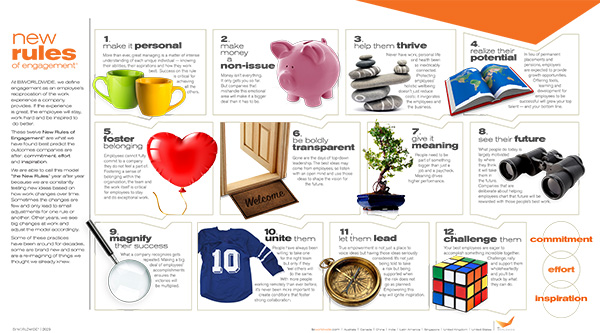Tom’s story:
I am neither proud nor ashamed that I am, by definition, mentally ill. What we ALL need to be concerned about is that unlike physical illness, mental illness continues to carry a stigma that leads many not to confront it…or talk about it…or ask about it.”Tom’s thoughtful and heartfelt story resonates with those of us who have or know someone with a mental illness.
“I have a mental illness known commonly as depression. I take medication (Prozac), which slows the re-absorption and extends my brain’s serotonin bath. Consequently, I feel better.
I’m not weak or fragile. It’s pure biochemistry.
The stigma surrounding mental illnesses, compared to physical conditions, plagues our society and, in many cases, our work communities. According to one study, when asked to consider their comfort level in discussing their own mental health with friends, family and employers, people reported being mostly uncomfortable.
56% say they’d be uncomfortable talking to friends and family about it, and 84% say they’d be uncomfortable talking to their employer.i
This must change.
Here’s where Tom’s story, to us, gets a bit more interesting—he is a recently retired salesperson and regional manager. This message was posted (with his permission) on the company intranet of his employer.ii
Tom concludes:
“PLEASE keep your senses tuned to your own feelings and into the comments and behaviours of those you love… and be proactive in asking them how they are feeling. With teletherapy on the rise and [our] employee assistance program, it’s never been easier to get help.”
Tom was the exception to the rule—his workplace gave him a platform to tell his story and, importantly, feel fully included. Tom was successful because he could belong and knew his purpose. He was supported and part of an organization that valued him.
We were interested in an employer who would endorse Tom’s message and post it on an all-company platform and it led us to ask…
How does company culture and how people feel about their work experience impact their mental and physical health?
A group of researchers at the University of Louisville took on this question. In a recently published study in the International Journal of Environmental Research and Public Health, the research team showed that workplace culture – specifically, how someone feels like they belong, or how isolated they feel at work – could influence a biological response. Using catecholamines and their metabolites as biomarkers of sympathetic nervous system activity, the research team asked participants about their unique experiences of work and tracked their overall work experience.
It turns out that work and organizational culture have a significant impact on our physical and mental health. Those who worked in environments where they were engaged and part of a community were less likely to show biomarkers that influence heart disease, hypertension, and depression, among other mental and physical challenges. But the opposite was also true. Participants who felt isolated, disconnected, and disengaged showed increased and elevated levels of biomarkers that influenced physical and mental illness, both in the present moment as well as in the future.
A study conducted by McKinsey & Companyiii highlights yet another business issue—those who struggle with mental health and well-being challenges are more likely to look for another employer:
Employees facing mental health and well-being challenges are 4x more likely than others to want to leave their organization.
In a report published last year, the U.S. Surgeon General sees an opportunity to create workplaces that support the health and well-being of employees:
When people thrive at work, they are more likely to feel physically and mentally healthy overall and to contribute positively to their workplace. This creates both a responsibility and unique opportunity for leaders to create workplace environments that support the health and well-being of workers.iv
It seems, based on these results, that culture can play a significant and important role in supporting employee health and well-being in measurable, tangible ways. What an uplifting and hopeful finding.
For the last decade, BI WORLDWIDE has been studying the factors that create engaging, inspiring workplaces, using a model called “The New Rules of Engagement.” Here is a short description of the factors measured in the model (click to enlarge):

In a study conducted last year to update the “New Rules” insights, a representative sample of employees across North America were asked if they felt their workplace supported a healthy lifestyle. Here’s a summary of what they felt their employer was delivering in terms of their employee experience that correlated with their feeling on whether their company supported a healthy lifestyle:
- Employees enjoy the work they do in a culture where they feel they can bring their “full self” to work.
- Their team is properly staffed, collaborative and has complementary skills and abilities.
- Employees receive meaningful training that helps them in their current roles and prepares them for future growth opportunities.
- They can take the lead on an important project and achieve success in attaining a goal they set.
- Employees are known, and listened to, by leadership, who help them see how their work contributes to the mission of the organization.
- They can earn a variety of rewards that inspire them.
Here are additional details, supported by the math behind the observations. According to BI WORLDWIDE’s Research Director Rob Mezera:
- If employees agree that “My team’s skills and perspectives complement each other well,” they are 9x more likely to agree that their employer makes it easy to live a healthy lifestyle.
- We asked employees if they have received several different non-cash rewards—such as tickets to a concert or travel. When they had done a good job, and if they did receive one of these rewards, they were 2 to 5x more likely to agree their employer makes it easy to live a healthy lifestyle.
- If employees agree they are “Reminded how the work you do makes an impact on your company’s mission,” they are 2.7x more likely to agree their employer makes it easy to live a healthy lifestyle.
- If employees believe they sincerely enjoy the day-to-day tasks that my job requires, they are 6.7x more likely to agree that their employer makes it easy to live a healthy lifestyle.
Culture matters.
And a culture that values certain outcomes really matters.
We hope this provides a roadmap for employers to improve their “healthy lifestyle” culture. Culture matters in not only creating and sustaining a productive, inspiring workplace, but one where employees like Tom can showcase their talents and skills and, in doing so, meaningfully contribute.
The Toms of the world need us. And we desperately need the Toms of the world to bring all their gifts to work.
Let’s not let them down.
If you or someone you know is struggling or in crisis, help is available. Call Talk Suicide Canada at 1-833-456-4566.
i This story is shared with the approval of the writer and has been edited for brevity.
ii The Stigma of Mental Illness, at: Aware (mentalhelp.net)
iii Full report at: https://www.mckinsey.com/capabilities/people-and-organizational-performance/ our-insights/the-state-of-organizations-2023?cid=soc-web
iv The full report and recommendations at: https://www.hhs.gov/sites/default/files/ workplace-mental-health-well-being.pdf
v For a full presentation of insights, please contact Rob Mezera at rob.mezera@biworldwide.com.
